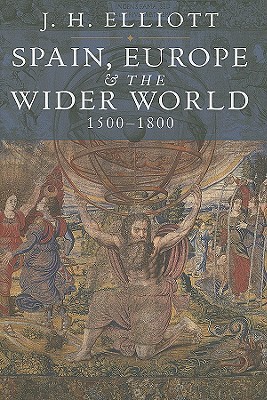
When J. H. Elliott published Spain and Its World, 1500�1700 some twenty years ago, one of many enthusiasts declared, �For anyone interested in the history of empire, of Europe and of Spain, here is a book to keep within reach, to read, to study and to enjoy" (Times Literary Supplement). Since then Elliott has continued to explore the history of Spain and the Hispanic world with originality and insight, producing some of the most influential work in the field. In this new volume he gathers writings that reflect his recent research and thinking on politics, art, culture, and ideas in Europe and the colonial worlds between 1500 and 1800. The volume includes fourteen essays, lectures, and articles of remarkable breadth and freshness, written with Elliott’s characteristic brio. It includes an unpublished lecture in honor of the late Hugh Trevor-Roper. Organized around three themes—early modern Europe, European overseas expansion, and the works and historical context of El Greco, Velázquez, Rubens, and Van Dyck—the book offers a rich survey of the themes at the heart of Elliott’s interests throughout a career distinguished by excellence and innovation.
Author

Sir John Huxtable Elliott, FBA, was an English historian, Regius Professor Emeritus at the University of Oxford and Honorary Fellow of Oriel College, Oxford and Trinity College, Cambridge. He published under the name J.H. Elliott. Elliott was educated at Eton College and Trinity College, Cambridge. He was an assistant lecturer at Cambridge University from 1957 to 1962 and Lecturer in History from 1962 until 1967, and was subsequently Professor of History at King's College, London between 1968 and 1973. In 1972 he was elected to the Fellowship of the British Academy. Elliott was Professor in the School of Historical Studies at the Institute for Advanced Study, Princeton, New Jersey from 1973 to 1990, and was Regius Professor of Modern History, Oxford between 1990 and 1997. He held honorary doctorates from the Autonomous University of Madrid (1983), the universities Genoa (1992), Portsmouth (1993), Barcelona (1994), Warwick (1995), Brown University (1996), Valencia (1998), Lleida (1999), Complutense University of Madrid (2003), College of William & Mary (2005), London (2007), Charles III University of Madrid (2008), Seville (2011), Alcalá (2012), and Cambridge (2013). Elliott is a Fellow of the Rothermere American Institute, University of Oxford, of whose Founding Council he was also a member. Elliott was knighted in the 1994 New Year Honours for services to history and was decorated with Commander of Isabella the Catholic in 1987, the Grand Cross of Alfonso the Wise in 1988, the Grand Cross of Isabella the Catholic in 1996, and the Creu de Sant Jordi in 1999. An eminent Hispanist, he was given the Prince of Asturias Prize in 1996 for his contributions to the Social sciences. For his outstanding contributions to the history of Spain and the Spanish Empire in the early modern period, Elliott was awarded the Balzan Prize for History, 1500–1800, in 1999. His studies of the Iberian Peninsula and the Spanish Empire helped the understanding of the problems confronting 16th- and 17th-century Spain, and the attempts of its leaders to avert its decline. He is considered, together with Raymond Carr and Angus Mackay, a major figure in developing Spanish historiography.